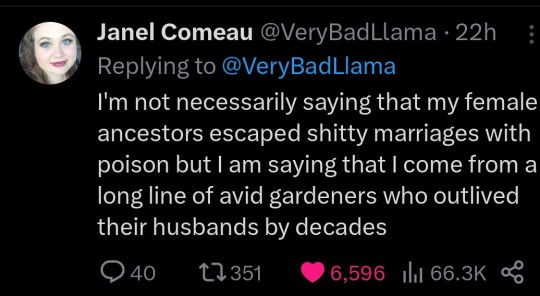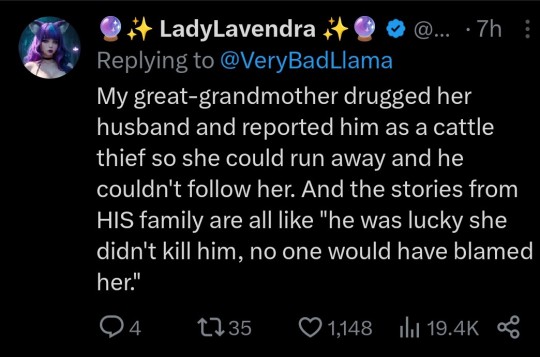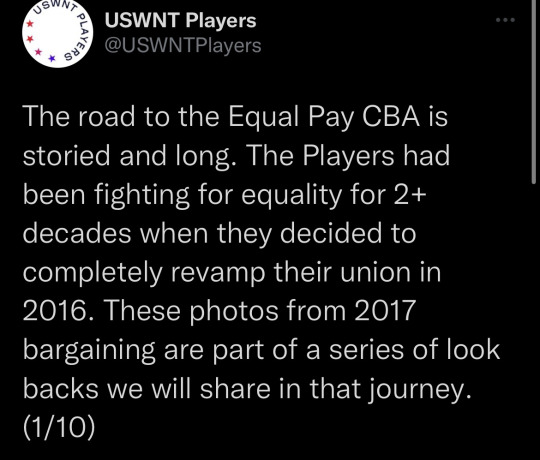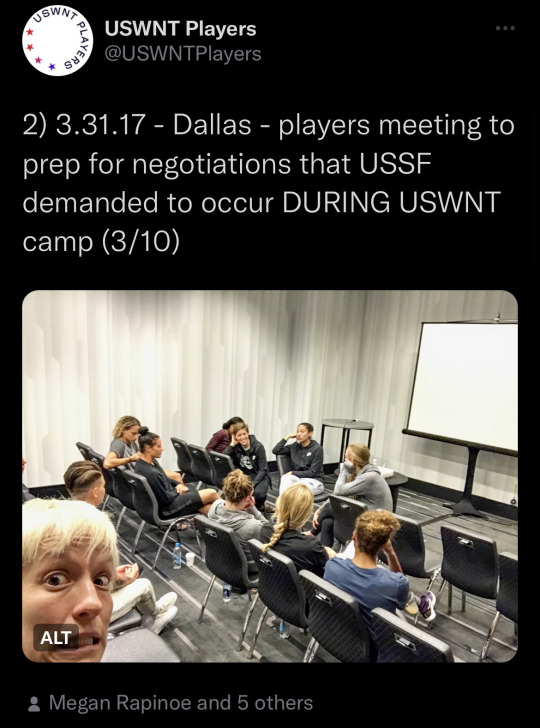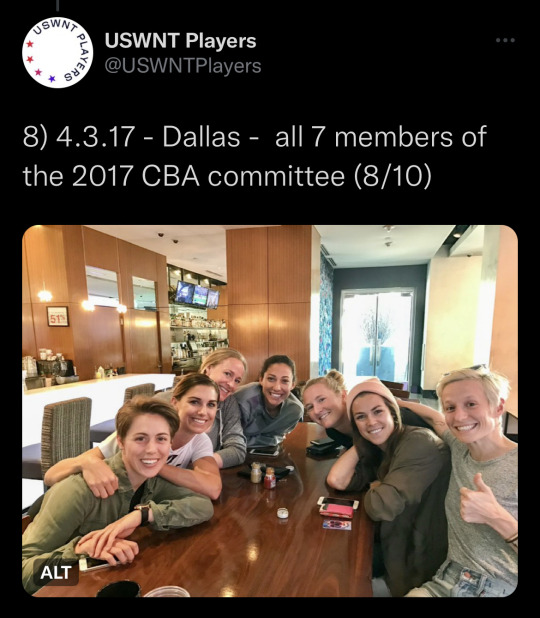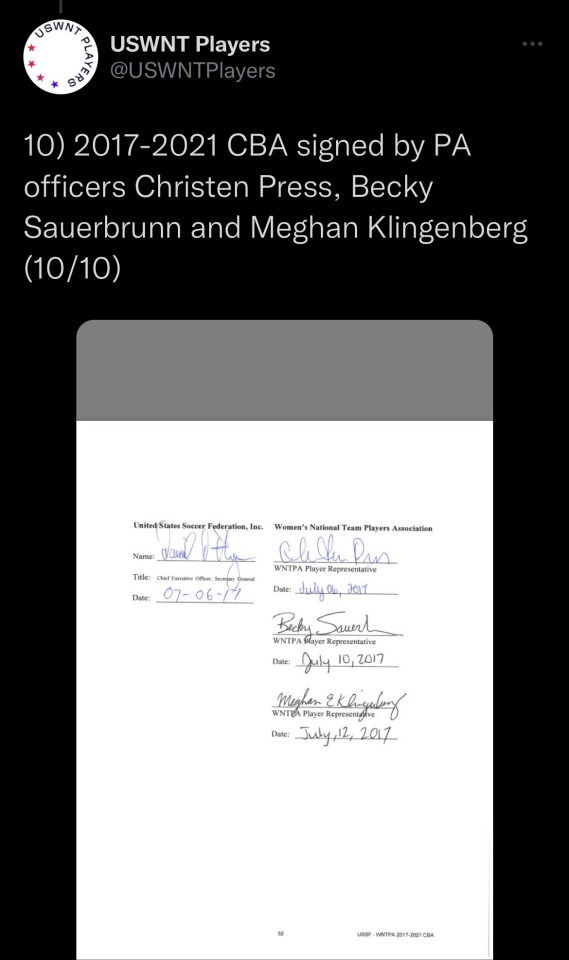#equal pay
Photo
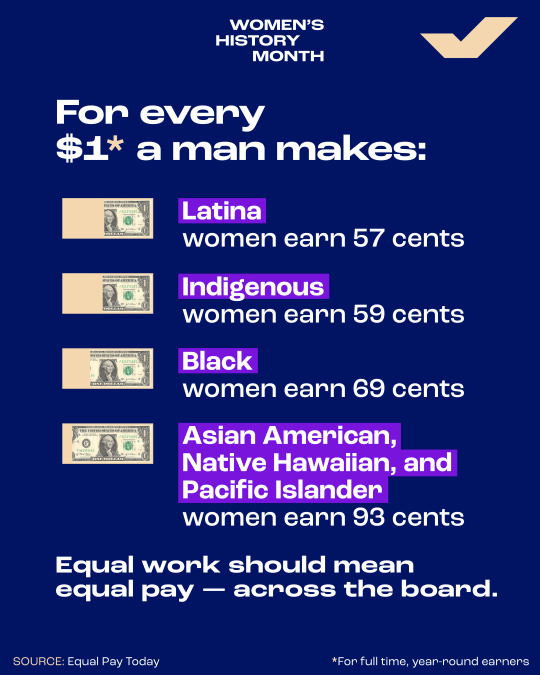
Today is Equal Pay Day. On average, a woman in the U.S. has to work until today — March 12th — to earn what a man was paid in the year prior. 🪙🙅🏽♀️💵
This #EqualPayDay, join us in bringing awareness to the gender wage gap, which is even wider for women of color.
The politicians WE elect can implement reforms that address pay inequality across industries. Make sure you’re registered to vote NOW at weall.vote/register.
#equal pay day#equal pay#equal pay today#pay gap#wage gap#pay inequality#register to vote#vote#voting#gender wage gap#equal work#equal work equal pay
215 notes
·
View notes
Text
Thinking about how being fat means you're denied a very large portion of what's considered a normal (and healthy) part of the human experience.
#like falling in love#having friends#or being desired (even in a platonic or professional way)#or getting compliments#feeling good or confident#getting to eat food#getting to curate what you wear and your style#appropriate healthcare#equal pay#you know#the little things that shape us#fatphobia#⛈️
212 notes
·
View notes
Text

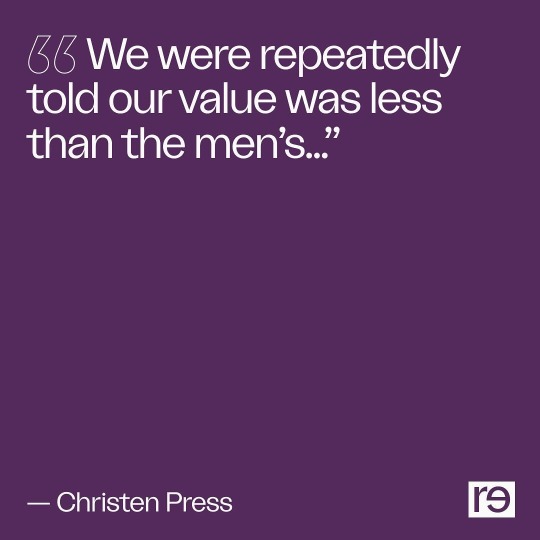


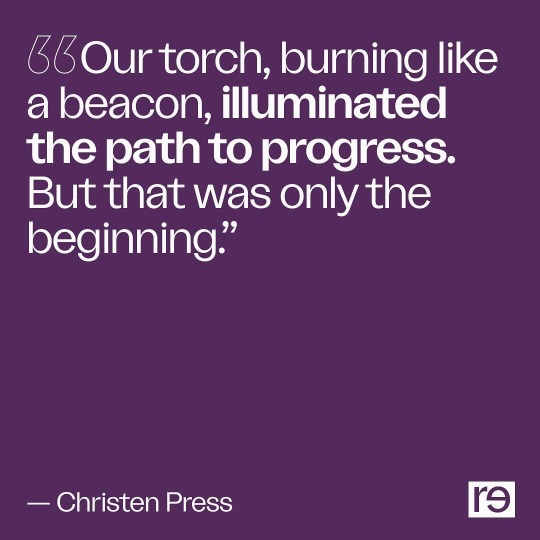

re—inc The beautiful thing about the beautiful game is that oftentimes, soccer is about more than soccer. It’s a microcosm of the larger society, showcasing its triumphs and tribulations, its victories and its inequities. It brings to light battles typically left in the dark.
The spotlight on equal pay and financial liberation will not extinguish today or this month; the spotlight will remain forever illuminated — shining a light on the necessary steps we must take and the conversations we must have to continue down the path toward progress.
Together we can close the gap and #MoveTowardsEqual
68 notes
·
View notes
Text
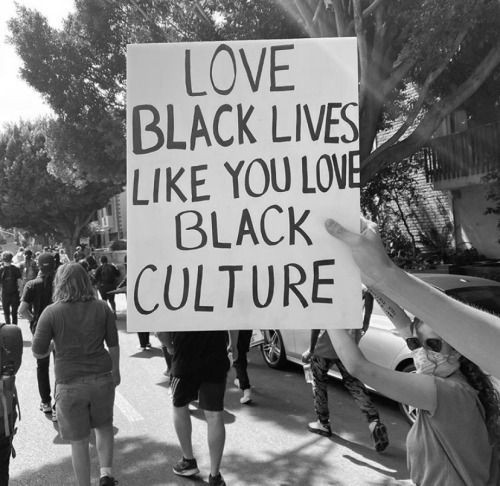
This☝🏾☝🏾☝🏾☝🏾☝🏾☝🏾
#black history#black history is american history#black tumblr#civil rights#black literature#black excellence#civil rights movement#black community#black art#black power#black lives matter#black people#black pride#black girl magic#blackexcellence365#black and white#equal justice#equal rights#equal pay
2K notes
·
View notes
Text
Drive, executive ability, and a single-mindedness of purpose became enduring characteristics of Susan Anthony. She was impatient with whatever did not contribute directly to the battles she waged in her various campaigns for reform. She began as a teacher at the age of seventeen, and for many years she was a critical observer and then vigorous participant at teachers'-association conventions.
An early example of her courage and ability to press to the main point of an argument can be seen in her role at the 1853 state convention of schoolteachers. At this time women teachers could attend but could not speak at the convention meetings. Susan listened to a long discussion on why the profession of teaching was not as respected as those of law, medicine, and the ministry. When she could stand it no longer, she rose from her seat and called out, "Mr. President!" After much consternation about recognizing her, she was asked what she wished. When informed that she wished to speak to the question under discussion, a half-hour's debate and a close vote resulted in permission. Then she said:
“It seems to me, gentlemen, that none of you quite comprehend the cause of the disrespect of which you complain. Do you not see that so long as society says a woman is incompetent to be a lawyer, minister or doctor, but has ample ability to be a teacher, that every man of you who chooses this profession tacitly acknowledges that he has no more brains than a woman? And this, too, is the reason that teaching is a less lucrative profession, as here men must compete with the cheap labor of woman. Would you exalt your profession, exalt those who labor with you. Would you make it more lucrative, increase the salaries of the women engaged in the noble work of educating our future Presidents, Senators and Congressmen.”
Susan's point on the wage scale of occupations in which many women are employed is as pertinent in the 1970s as it was in the 1850s. Equal pay for equal work continues to be seen as applying to equal pay for men and women in the same occupation, while the larger point of continuing relevance in our day is that some occupations have depressed wages because women are the chief employees. The former is a pattern of sex discrimination, the latter of institutionalized sexism.
-Alice S. Rossi, The Feminist Papers: From Adams to de Beauvoir
55 notes
·
View notes
Text
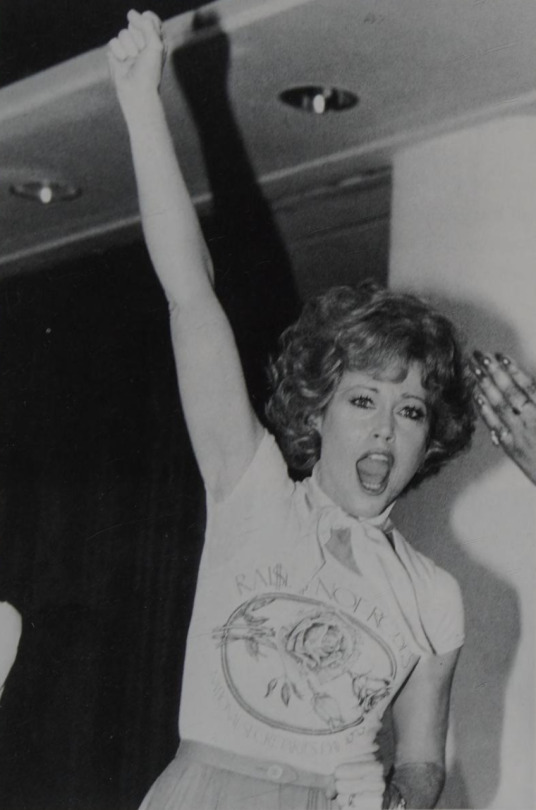
Jane Fonda on National Secretaries Day, 1980.
#right on#jane fonda#political activist#9 to 5#nine to five#era#secretary#office workers#equal pay#womens rights#activism#feminist#dolly parton#lily tomlin#actress
40 notes
·
View notes
Text



the pain and tiredness in their eyes :(
269 notes
·
View notes
Text
Now that the tournament is wrapped up I'll first say that even with all the bullshit that came along with it, I still feel so privileged to be able to watch the growth of women's sports in real time like this. There was so much Black joy, so much colonized joy, so much queer joy, and I hope nobody loses sight of how radical the wwc and woso are at the roots. The players are succeeding with quite literally every odd stacked against them in some cases, and i desperately hope that with a spotlight shined on some of the inequalities we've seen, it might get better.
Having said that, I hate that Spain won. It's nothing against the players and everything against Vilda; I ache for the players who watched the final knowing that with a win, with the federation backing Vilda, their careers might be over. I'm still kind of in disbelief that after this incredible tournament, this is somehow where we ended up. And I hope that if you're feeling similar to me, that feeling will serve as a reminder that we are not done yet. Growth isn't good enough if it comes at the cost of players' well-being.
#woso#wwc analysis#wwc#wwc23#fifa women's world cup#fifa wwc#fifa 23#fifawomensworldcup2023#wwc 2023#womens world cup#womens soccer#wwc thoughts#fuck abusers#fuck the federations that back them#equal pay#womens sports#uswnt
93 notes
·
View notes
Text

It is possible, due to brexit, that we may lose equal pay (among other rights) in 2024. It’s very important we don’t allow Tories to sweep these things under the carpet or ignore them.
It’s very possible in the next year we could lose a lot of the worker’s rights we gained under New Labour, also- many of these are incredibly important in terms of worker’s safety and in terms of equality.
Capitalism is shit enough without letting them take the limited protections we have available.
176 notes
·
View notes
Text
all jobs should earn the same wage
if society needs a job done, it's important; show me a hospital without housekeeping and I'll show you a cesspool
don't tell me some require more training so they'll should pay more, because the state should pay you to be trained in your job; during that time, your job is being trained (trade school, university, med school, etc) for your eventual job
there's obviously a lot more that goes into a society like this (eg choice of job, aptitude, society's need for a particular role in a particular place and time)
#jobs#equal pay#sorry if this blows your fantasy of earning the big bucks while someone else has to grovel for a living wage
379 notes
·
View notes
Text
Tobin Heath | Inspiration Summit 2023
What would you say to the individuals who look at you and say, 'I'm so inspired by what you've done. How can I take a piece of that back in my own life?'
I think this summit is one of the great examples of it. I was fortunate enough that I played for a team. So what happened was… through the process of… You know, you put eleven women on the field and those eleven women have to go out and figure out a way to win a football match. There was no man on the field to say like, 'Oh, let me do it for you.' We did it ourselves, and I think that’s powerful.
I believe in the power of community. I believe in the power that you don't have to fight battles alone. I think, like I said in that moment when everybody was chanting 'Equal Pay!' the act of gathering was so powerful. That stadium chanting that was so powerful.
And I think we've all had shared experiences to the point of being paid unequal, we have that shared experience. And I think that if we try to look at our individual battle as an individual battle and not as a collective battle, I think we fail. I think if we look at it collectively, I think we really have a chance of succeeding.
I was speaking to another athlete in another sport recently and I was kind of like, 'Hey, what's going in your sport? How can I help?' And it was interesting because in all these women's sports pockets— because I believe women's sports currently is fragmented. It's not accessible. I mean, if you try to go watch it, it's like everywhere and nowhere at the same time, which is really frustrating for fans. I think you lose a massive audience because of that. So part of this was like, I said, 'Hey, like what's going on?' And she started telling me about the battles she was going through and I was like, 'Man, that sounds like something we did five years ago, that we went through five years ago' and I was frustrated in that moment because by keeping us fragmented and keeping our battles small and to each industry and to each person's situation, it really diminishes the power that we have as a collective.
And I think moments like this, when you can realize that every single women in every single field has a shared experience— it might look different, it might feel different, but we all have a shared experience and that our voices coming together are really, really powerful. That's when we start this conversation from another perspective.
And I remember in our pay equity lawsuit, there was one critical moment where... For so long we had gone into these rooms that it seemed like they would be smarter than us, right? They seemed like the people... They were talking all this bullshit, trying to make it so that we couldn’t understand what they were saying, yada yada yada '...the economics...'
And honestly, through this process, we were just like, 'Okay, we're sick of going into these rooms to be told that we have no value. We believe in our value. We see our value every single day. We're just… We’re done with this room.' And in one moment, a collective group of us, instead of just continuing to hear that and continuing to accept it, in one moment, that collective group, we stood out, and we walked out of the room.
And that act was so powerful. And it's one that... For the people that were in the room, it will sit with me for the rest of my life, because it was the first time we stood up together as a collective and we said, 'No. We're done with this.' And that started a massive, massive moment of a power shift.
152 notes
·
View notes
Text
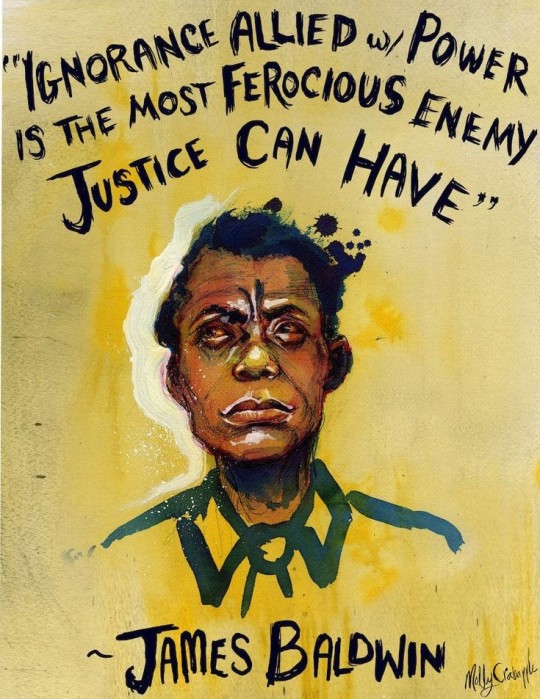
#james baldwin#black history#black history is american history#black tumblr#civil rights#black literature#civil rights movement#black excellence#blackexcellence365#black community#black people#black power#american history#black art#art#african american culture#african american men#equal justice#equal rights#equal pay#educated black men#education#educators#civil rights activist#stay woke#stay strong#black love#black and white#black archives#black culture
2K notes
·
View notes
Note
just bought a hand tray (off your site, not etsy) for my friend!! Thank you for making such cool things <3
thank you so much! i'm sure they're gonna love it (:
i honestly love our hand trays so much, i have at least one of every color in my house. i use 'em for keys, jewelry, heck i hung one on the wall for necklaces.





i'm partial to the strawberry lemonade, but
( oh, p.s., you can get all these guys and even more guys from our worker-owned collective at objectlover.com )
#small business#queer owned business#equal pay#object lover#worker owned collective#the electoral process#my job is making these guys and i love them and i think you will too if you have one in your house#reach out to me if price is a barrier i can let u know about sales & discount codes
62 notes
·
View notes
Text
There was no point in women putting their faith in men, argued [Rebecca] West, not even socialist men, because there was a conflict of interest between women and men, and men would simply 'protect their own' in the face of any threats from women. The unapologetic declaration of war, the unabashed insistence on it as a necessary and just war is a characteristic which marked Rebecca West then and now. The withdrawal of male approval - a weapon used effectively against women for a long time - appears to have made no impression on West who continued to mock male values and to expose the false nature of male 'protection'. That she did this so openly, unashamedly, and in the spirit of moral responsibility may have enraged many men but inspired many women.
Every aspect of man, and man-governed systems, was grist to her mill and week after week she wrote her stinging and sparkling articles: ‘Every man likes to think of himself as a kind of Whiteley's - a universal provider,’ wrote Rebecca West in 1912 in the Manchester Daily Despatch (26 November). 'The patriarchal system is the ideal for which he longs. He likes to dream of himself sitting on the verandah after dinner, with his wife beside him and the children in the garden, while his unmarried sisters play duets in the drawing room and his maiden aunts hand around the coffee. This maintenance of helpless, penniless, subservient womanhood is the nearest he can get in England to the spiritual delights of the harem.'
In the interest of making this dream come true she explains, man has thought of a multitude of reasons for paying woman less - even when she does the same work - for how else is she to be enticed into giving up her own life in order to serve a man, if not by financial necessity? But because many women want to lead their own lives, and because they can see that no pay and low pay makes marriage compulsory, they have started demanding better pay and the option of earning their living in occupations other than marriage. This is a perfectly reasonable and just demand, states West, but one to which men are likely to react with irrationality and rage - thereby unwittingly revealing the extent of the esteem in which they hold women and the unmasked nature of male chivalry and protection! When ‘womanhood declares,’ says West, ‘that she is no longer helpless, dislikes being penniless, and refuses to be subservient, the men become indignant and inarticulate,’ and find themselves caught in a contradictory position.
They have two areas they wish to protect - in their own self interest - the home and the workplace, and when 'only by the fear of starvation are women coerced into having husbands,' then starving women into marriage means among other things, paying them low wages. Unfortunately, however, men also want to maintain their monopoly on employment and they have to confront the unpalatable fact that lower paid women are often more attractive to employers than higher paid men, with the result that ensuring wives may necessitate the risk of losing jobs. Hence their irrational, inarticulate protest, states West, for men want both wives and jobs.
Equal pay for equal work was just a matter of plain common sense to Rebecca West: women's needs are no less than men's, and women's freedom to choose paid work or marriage - or both, as men had been doing for many a year - was no less precious. And if men were only sensible about this she argued, they might begin to see that they had something to gain as well, for once the compulsory element was removed from marriage, once women were permitted the same job opportunities as men, women would be more likely to choose a companion than accept an employer; ‘if there is to be any romance in marriage,' she wrote, 'woman must be given every chance to earn a decent living at other occupations. Otherwise no man can be sure that he is loved for himself alone, and that his wife did not come to the Registry Office because she had no luck at the Labour Exchange' (ibid.).
The male capacity for logic, however, appears to be severely limited for neither then nor now have men shown themselves to be convinced by the reasonableness of the case, and they give every sign of ending the century in the way that they began it - by paying woman less. Despite the passing of legislation such as Equal Pay Acts most sources (including the United Nations' statistics on the position of women) indicate that the gap between women's pay and men's pay is growing greater every year. Men still control the world's resources (more then 99 per cent of them according to United Nations' statistics) and therefore can still exercise control over women: seventy years has seen no significant change in the distribution of wealth between the sexes.
-Dale Spender, There’s Always Been a Women’s Movement This Century
#dale spender#rebecca west#equal pay#female oppression#love and marriage#patriarchy#male entitlement
93 notes
·
View notes

